Take advice from the skin-care pros
Dermatologists recommend doing a few things before bed so that you can utilize your beauty sleep overnight and wake up with younger-looking skin. Your skin already works hard in the evening, but you might not realize these 9 things that happen to your skin while you sleep. Here’s what you can do for glowing skin.
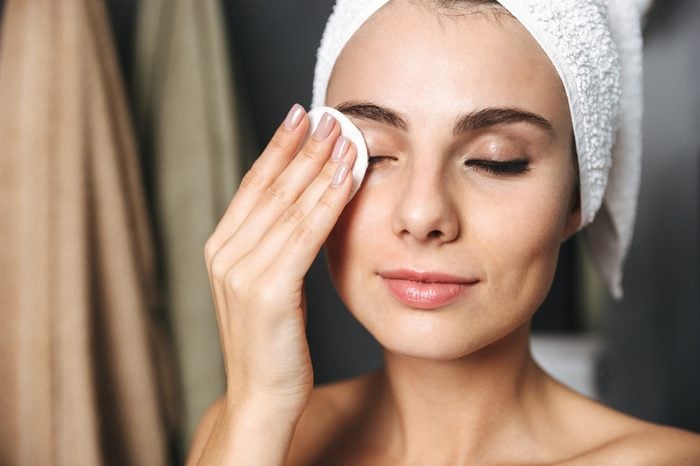
Come clean
“Always, always, always thoroughly remove the day’s buildup of makeup, sunscreen, and sebum from your face before going to bed,” says Christine Choi Kim, MD, a dermatologist in Santa Monica, CA. Not doing so can lead to breakouts, dullness, and even eyelash breakage from leftover mascara. Unlikely to hit the sink before hitting the hay? Leave a pack of no-rinse cleansing wipes beside your bed, so that you can easily swipe before you sleep. Here’s what people with great skin always do before bed.
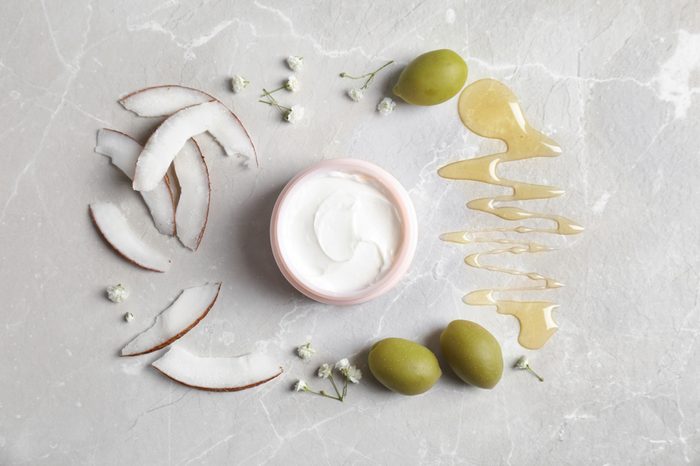
Use the ultimate anti-ager
“Retinoids are every dermatologist’s secret weapon,” says Dr. Kim. “They have anti-acne and anti-aging properties and have rigorous scientific research to support these claims.” The one downside to the vitamin-A derivatives, which speed exfoliation to rev radiance and boost production of skin-smoothing collagen, is that they can be drying and cause irritation. To minimize side effects, Dr. Kim recommends starting with an over-the-counter product that contains retinol, a mild form of the ingredient, to get your skin acclimated. Once you can tolerate retinol every night without irritation, ask your doctor about switching to a prescription form like Renova.
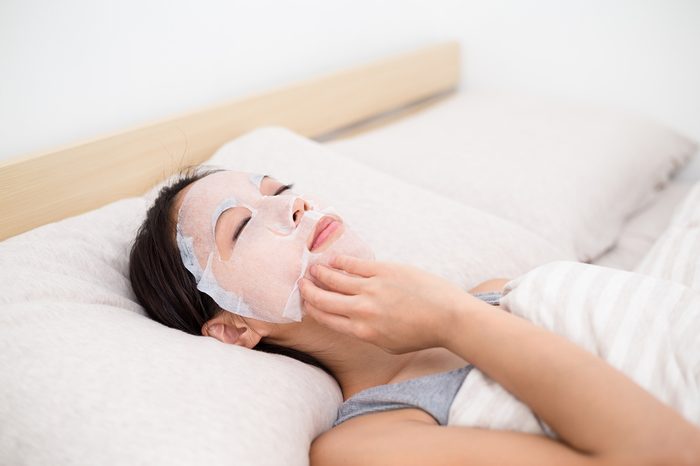
Opt for a mega-moisturizer
The latest beauty trend, the sleeping facial mask, is worth using if you want to wake up to a more radiant complexion, says Dr. Kim. Designed to be applied before bed, these products (available for under $20 at the drugstore) are super-concentrated but much lighter than traditional night creams, so you can wear them without messing up your hair and pillowcase. To maximize your sleep mask’s benefits, wear it over your anti-aging cream to help it penetrate better. Read more anti-aging secrets that doctors follow.
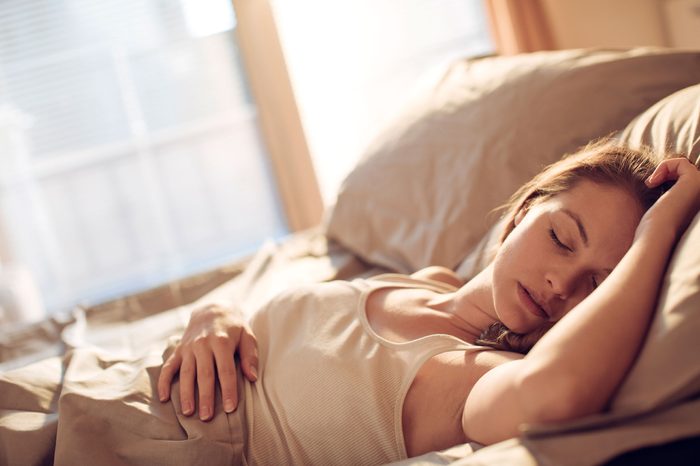
Switch sleeping positions
Snoozing on your stomach or the same side of your face every night pushes your face into your pillow for long periods of time. “After years, this can manifest as more lines and wrinkles,” says Dr. Kim. Sleeping on your back is your best bet for avoiding skin crinkles, but if that’s not comfortable, at least alternate which side of your face you sleep on during the night.
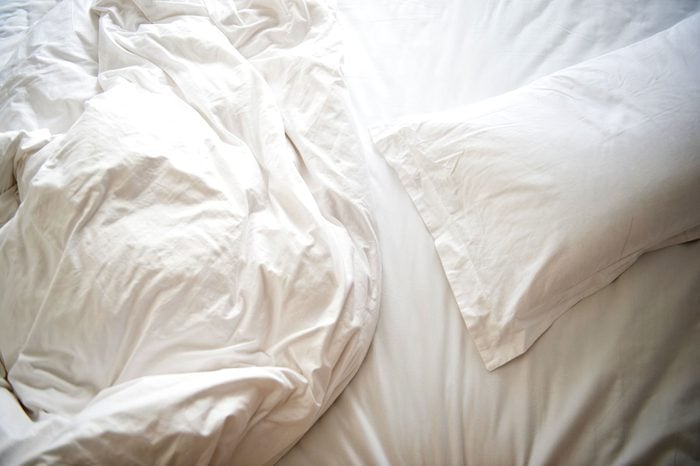
Change your pillowcase
Invest in a pillowcase made of silk or sateen, and your complexion will thank you. “You can totally tell the difference on your skin,” says Mona Gohara, MD, associate clinical professor of dermatology at Yale School of Medicine. “Softer pillowcases are less abrasive and minimize inflammation, which is one of the root causes of skin aging.” Check out the other silk pillowcase benefits you’ll get once you make the switch.
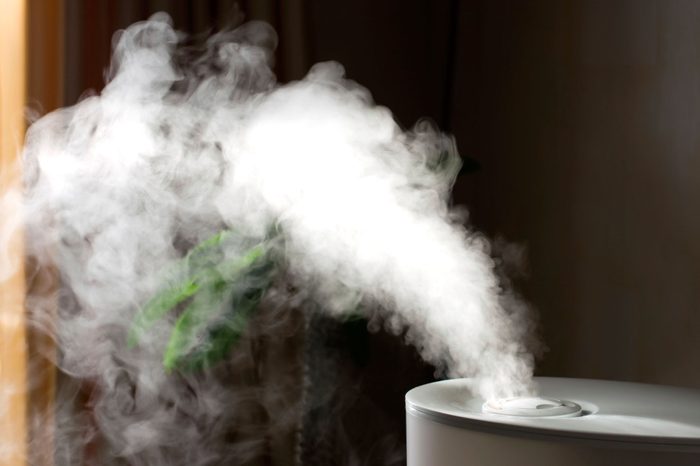
Steam up your boudoir
If your skin tends to be dry, using a humidifier at bedtime can help keep it hydrated and supple, says Dr. Kim. This is especially important during the winter when cold, dry air saps moisture from your skin. But since air conditioning can also dry out your dermis, adding moisture to the air via a humidifier can help keep skin glowing in summer too. (Facial steamer vs. facial humidifier: what’s the difference?)
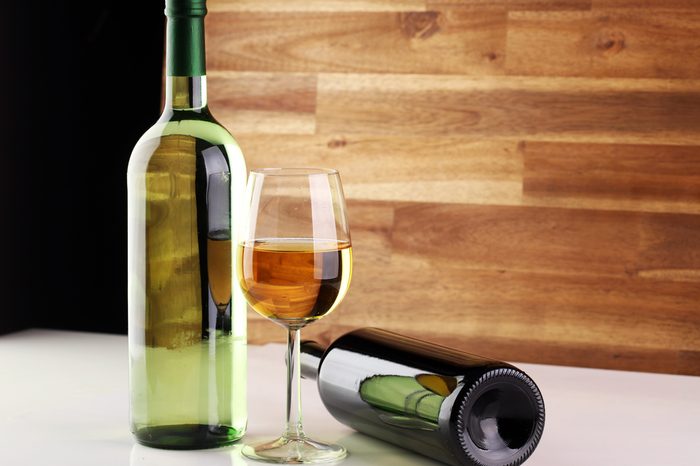
Stick to a single glass of wine
“Excessive alcohol consumption can lead to dehydration, making skin imperfections look worse,” says Arielle Kauvar, MD, clinical professor of dermatology at New York University School of Medicine. Plus, even though alcohol can help you conk out, it often causes you to wake up after a few hours when it starts to wear off—and no one looks their best after a night spent tossing and turning, she adds.
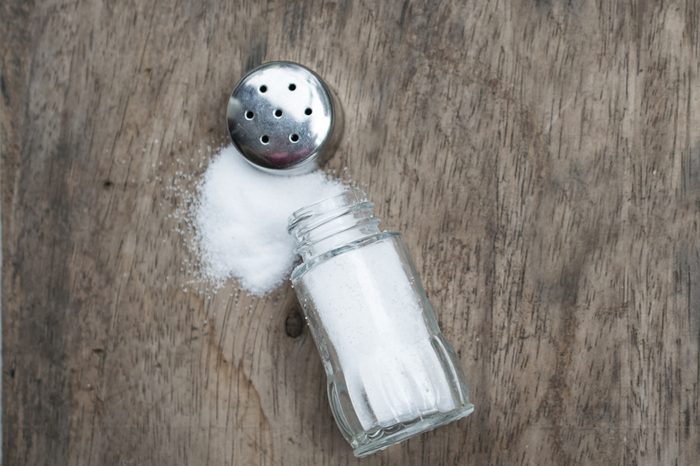
Hide the salt shaker at dinner
Too much sodium, especially before bedtime, can cause your eyelids to retain excess fluid, says Dr. Kim. For added protection, try sleeping on an extra pillow, which allows you to slightly elevate your head and prevent fluid from pooling in your skin. Here’s how you can look and feel younger right this very minute.
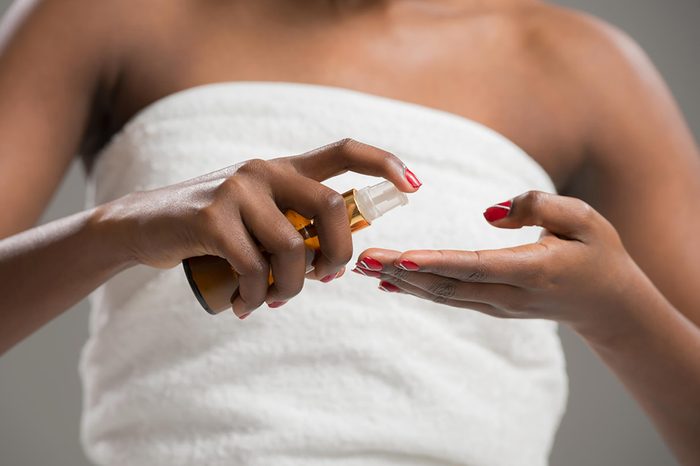
Tackle trouble spots
Remember to moisturize your lips and your hands before bedtime, advises Dr. Kim. “During the daytime, it’s difficult to keep moisturizer on these body parts with all our eating and drinking and constant hand washing, so take advantage of these eight hours to replenish much-needed hydration.”
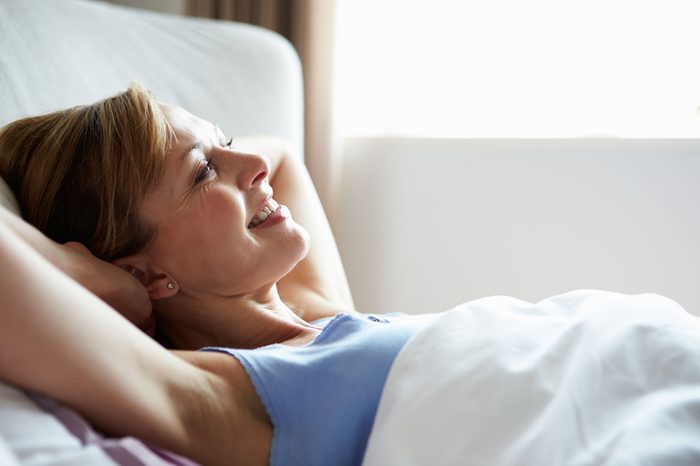
Catch enough zzzzzs
“Beauty sleep is a legitimate scientific thing,” says Dr. Gohara, who explains that nighttime is when skin naturally regenerates itself. Getting too little shuteye impairs this process, resulting in everything from a lackluster appearance to the accentuation of fine lines. Adding insult to injury, skimping on sleep causes a surge in the stress hormone cortisol, which leads to the breakdown of collagen. Research published in 2015 found that women who slept 7 to 9 hours a night looked younger, had more hydrated skin, and were happier with their appearance than those who only slept 5 hours. And another study reported that sleep-deprived women had twice the signs of aging (think wrinkles, brown spots, and sagging) compared with those who scored enough snooze time. Next, read about the secrets your dermatologist won’t tell you.
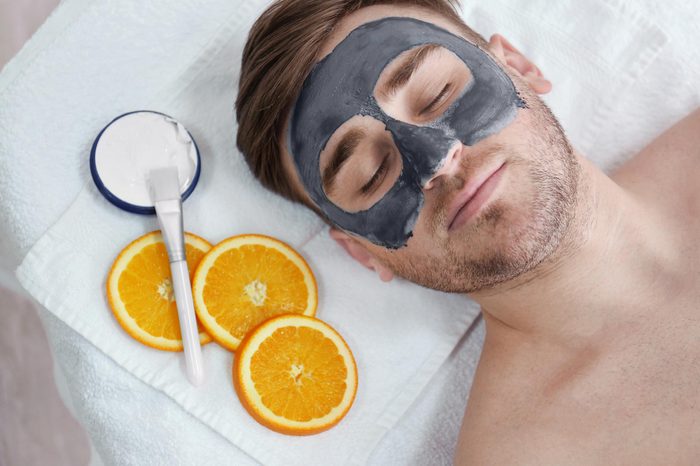
Try an overnight mask
“Masks can be a great way to boost the appearance of the skin and instantaneously give skin a radiant more youthful appearance,” shares Sejal Shah, MD, board-certified dermatologist in New York. “At night, your skin repairs and renews itself, and the skin cells are at the peak of their metabolic activity, so use ingredients that complement these processes. Retinoids and alpha-hydroxy acids help increase cell turnover and peptides stimulate the growth of new cells.” One to try is Perricone MD Multi-Action Overnight Firming Mask. And don’t miss what skin experts say to never, ever put on your skin.
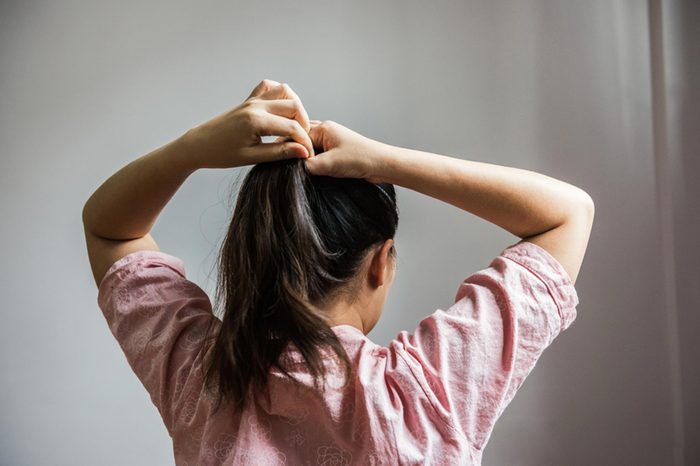
Put your hair up
“Hair acts like a magnet for dirt and pollution,” says Dendy Engelman, MD, board-certified dermatologic surgeon. “When you sleep, it can rub on your face and bedding, making you more susceptible to breakouts.” That’s why she recommends pulling hair into a loose braid or ponytail before bedtime. “In addition, wash your face right up to your hairline and try to sleep with clean hair, which will reduce product and bacteria buildup on bedding.” The Goody Ouchless Flex Hair Barrette is great for pulling your hair back during the night. It’s flat, so it doesn’t dig into your scalp, but it has a tight grip so hair won’t come loose.
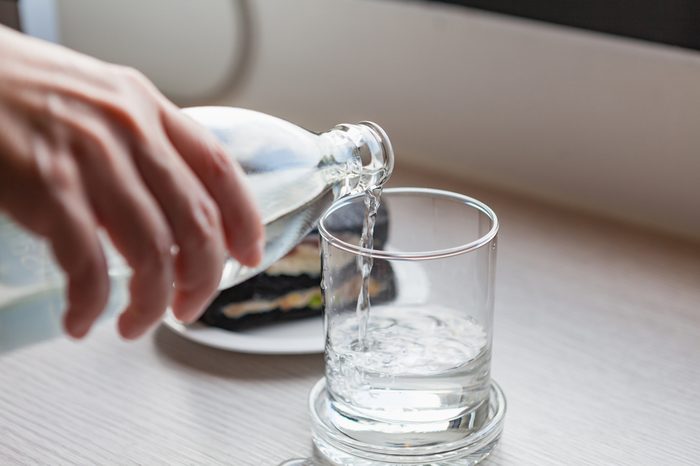
Nighttime hydration
Everyone knows hydration is key during the day, but according to Bobbi Del Balzo, lead medical aesthetician at Deep Blue Med Spa in Long Island, New York, hydrating at night is also important. “Keep water on your nightstand and sip in the middle of the night [if you wake up and are thirsty],” she adds, “You can never get enough hydration! The more water you take in, the better the skin. If you only take sips you won’t be running to the bathroom.” Here are proven secrets to fighting pimples overnight.
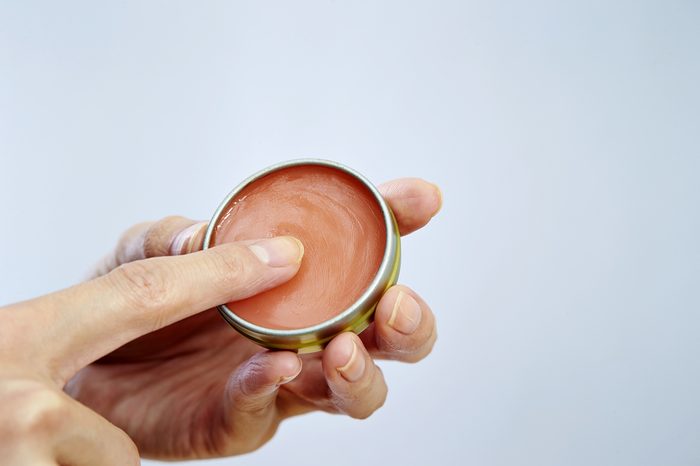
Don’t forget about your lips
One part of your face you may neglect overnight are your lips and dry, wrinkly lips can age you quickly, says Deanne Mraz Robinson, MD, board-certified dermatologist at Modern Dermatology in Westport, Connecticut. To avoid this she slathers Aquaphor on her lips every night after brushing her teeth. They’ll be hydrated all night long and you’ll wake up with totally kissable lips. Find out 10 more secrets to hydrated lips.
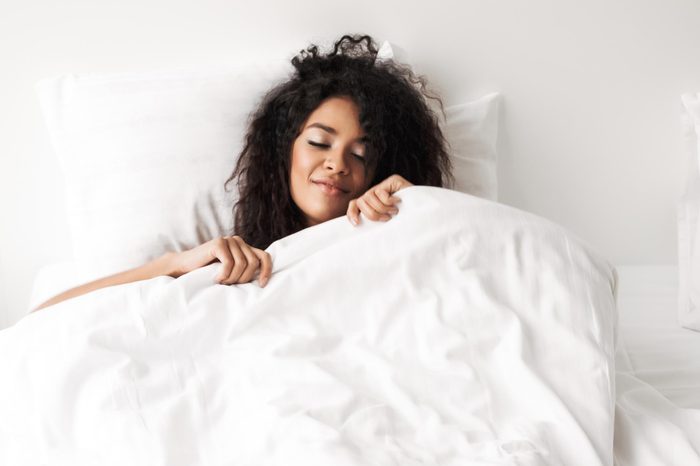
Get enough Zzzs
“The skin repairs and renews itself at night, and skimping on sleep can impair this process,” says Dr. Shah. “Too little sleep also stimulates the release of cortisol, which can cause collagen breakdown.” One study found that sleep-deprived women had more signs of skin aging than women who slept enough and another found that women who slept seven to nine hours nightly looked younger than those who only slept five hours, she says. Find out more important ways not enough sleep affects your looks.
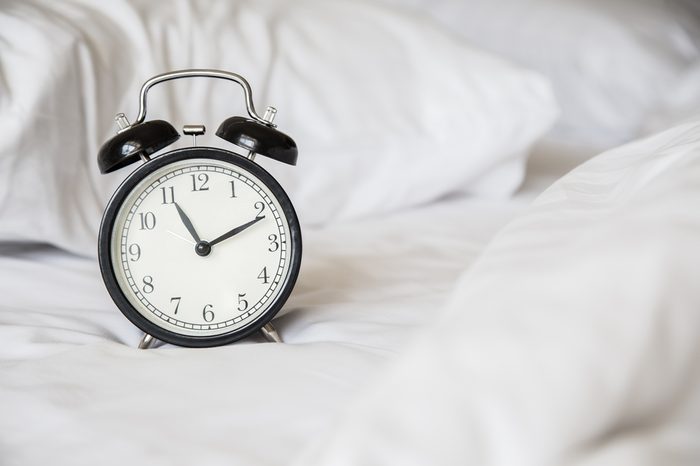
Don’t hit the sheets right away
If your nighttime regimen consists of a lot of steps, you should wait a while before going to sleep. “Always complete your nighttime skin regime and wait an hour before going to sleep to allow proper product penetration and absorption,” says Del Balzo. Otherwise, all the product could get wiped away on the pillowcase!
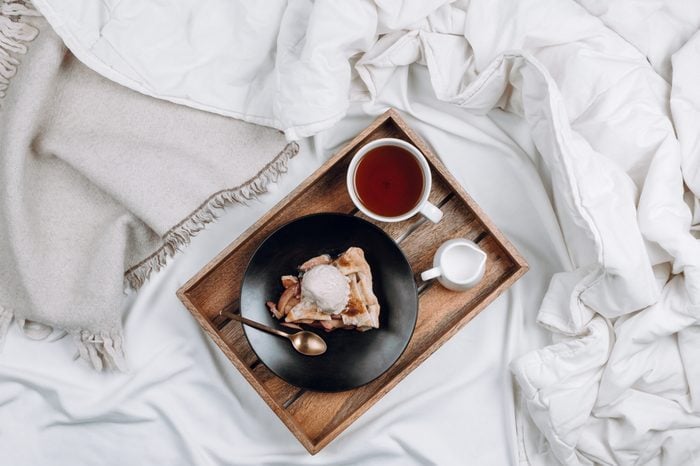
Skip the late-night snack
“You must allow the food to properly digest before laying down,” says Del Balzo. “If you eat too close to bedtime (within two to three hours) your sleep could be restless sleep and/or bad bacteria in your gut may flourish, which contributes to poor skin health.” If eating late at night is a guilty habit, here are some ways scientifically proven to help you break it.
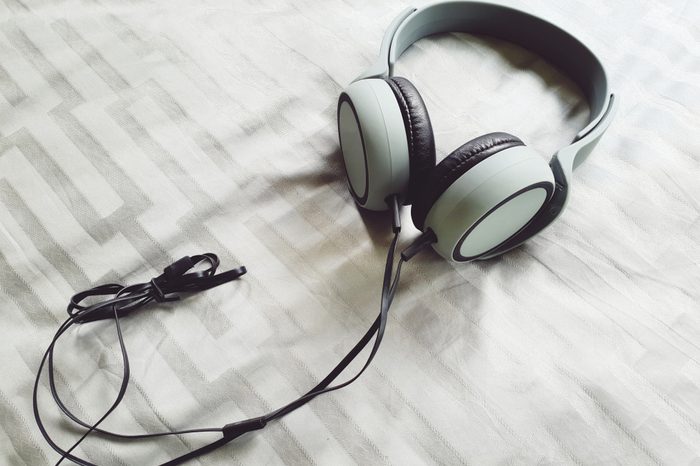
Fit in relaxation time
It may sound like common sense but relaxing before bed can lead to a more restful night—and, in turn, younger-looking skin. “Listening to relaxing music before bed or meditating will result in a more rested, long, fulfilled sleep,” says Del Balzo, “This helps reduce stress and results in a brighter complexion.”
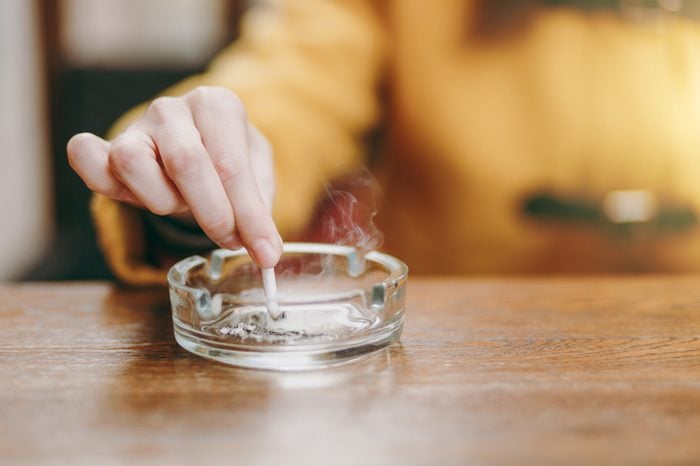
Say no to smoke
At this point, we all know smoking is bad for you, but Rachel Nazarian, MD, board-certified dermatologist in New York City, says it’s important to keep secondhand smoke out of your bedroom and away from your skin at night. And if you’re subjected to smoke during the night, she suggests making sure to wash your face thoroughly. If you needed any more reasons to quit, check out these amazing ways your body heals itself after you quit smoking.
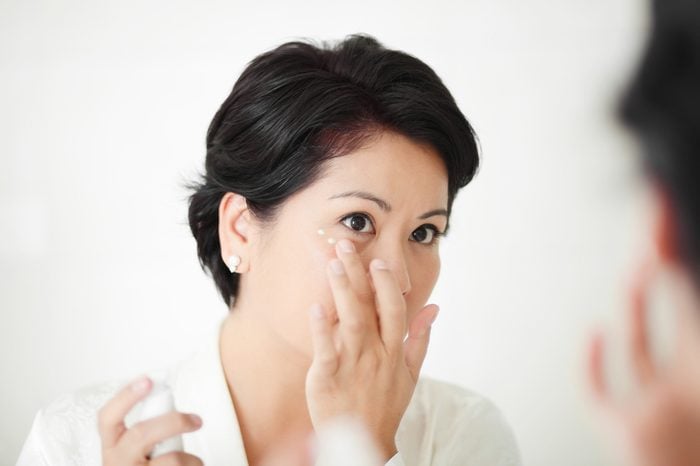
The eyes have it
An eye cream is a must to prevent laugh lines and crow’s feet. Dr. Nazarian recommends dotting on an eye cream that contains peptides and antioxidants before bedtime. Olay Eyes Deep Hydrating Eye Gel cools the skin under eyes to reduce swelling and has peptides and hyaluronic acid to help eyes look more awake. What are peptides? Find out more, next.
